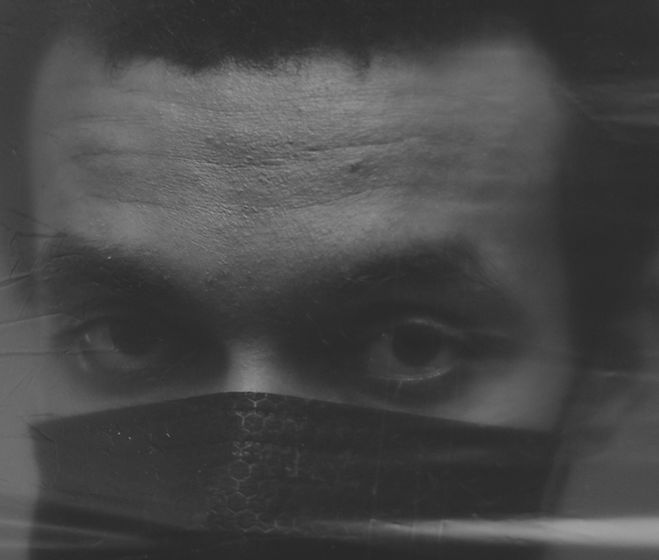top of page

The Other Pandemic
We are all praying for a vaccination for COVID-19, but I fear another pandemic that shows no sign of abating.
The Other Pandemic: Image
It’s Thursday night and I’m logged into my writing group, which went virtual during the second week of March due to the coronavirus pandemic. It’s day 55 of the lockdown. We are meditating in preparation for our writing exercise and we are prompted to show gratitude for something we managed to do today. I can think of nothing. I am tired. I feel heavy and I am done with the stranglehold this virus has placed on every aspect of our lives. But I am not in control, so I am not done. I have no choice but to continue.
I take another breath in meditation and scrape the bottom of the gratitude pot and come up with breathing. I am grateful that I am breathing. But I’m really not breathing very well, because I have been choking back anxiety all day and the jackboot of grief is pressing hard on my chest and try as I might I cannot meditate myself out of this, or walk myself out of it or yoga myself out of it or even binge-watch myself out of it.
Yesterday, on day 54, I cracked – quietly so others could barely notice, as is my way - but I cracked, nonetheless. I woke up feeling worn, and I feared a crack was imminent, but I thought I could repel it if I just stayed focused on the tasks I had set for myself and push the rest of the world away. But at 8:30 a.m. the phone rang, and my man’s niece informed us that his brother had been admitted to New York University Hospital, diagnosed with COVID-19. And that he had exposed his mother, my man’s mother, who is 90 and frail.
My man’s brother is over 60 and has COPD – and he is black. Throughout the pandemic he has taken the train from his home in Brooklyn every day to his job at a homeless shelter, working with a clientele for whom adhering to social distancing and masking protocols can prove to be one too many hurdles to clear in their tenuous and complicated lives. He is considered an essential worker and like all essential workers has put himself in danger to take care of others.
My man finished the phone call and we turn our attention to the morning news. There is the grainy video of a black man, jogging down a street and a white pickup truck and there are gunshots and the black man is on the ground and he is dead.
The black man had a name – Ahmaud Arbery - and he was 26, but mostly he was black, and that is what made him a target. His blackness made two white men with rifles and a sense of entitlement decide that his Sunday jog could be construed as his fleeing a crime and they could take the law into their own hands and kill him in cold blood.
One more black man dead in the street was enough to make me crack on day 54 of the coronavirus lockdown.
I love a black man, and to love a black man – especially if you are a white woman – is to enter a surreal world of ugly realities – that he will be judged more harshly during job interviews, in courtrooms and even on the street. That people may fear him only for the color of his skin. That some people may alter their view of me for loving him.
Like Ahmaud Arbery, my man has a name and his brother has a name, but I am not using their names because their stories are the stories of so many black men – this I have learned in a decade of loving a black man.
We had been together about two years when Trayvon Martin was murdered and I began demanding that my man not use the hood on his sweatshirt; that I stand in front of him, ask the questions and order the drinks in certain bars; that we absolutely not enter others.
When you love someone, the instinct to protect them is as natural as breathing, but when you love a black man you come to understand your ability to do so is maddeningly limited. You come to feel that you are simply biding time. You wonder – always – if he will be allowed to live out his natural life or will stumble into some rabbit-hole of racism that will cause him to lose his life simply because of the color of his skin.
Will there come a day when my kind-faced man is perceived as a threat as he leaves a convenience store? When the black man I love takes our timid mutt for a walk and some racist, entitled crackpot decides that because he is black and because the hood on his sweatshirt is up and because our dog – that is afraid of just about everything – has perhaps 1/32 of pit bull somewhere in her murky heritage, he is a threat and he deserves to be shot?
We are 55 days into a coronavirus pandemic, but centuries into a pandemic that relentlessly threatens black men based only on the color of their skin. The curve of this pandemic shows no sign of flattening. There is no vaccine on the horizon and – try as they might – social scientists and activists are far from finding any treatment to reduce the virulence of the disease of racism, never mind a cure.
Ahmaud Arbery is just the latest victim in a string of uncountable victims, and anyone could be next – even the black man I love.
Trisha Giramma is a writer and editor living in Providence, R.I.
The Other Pandemic: Text
bottom of page